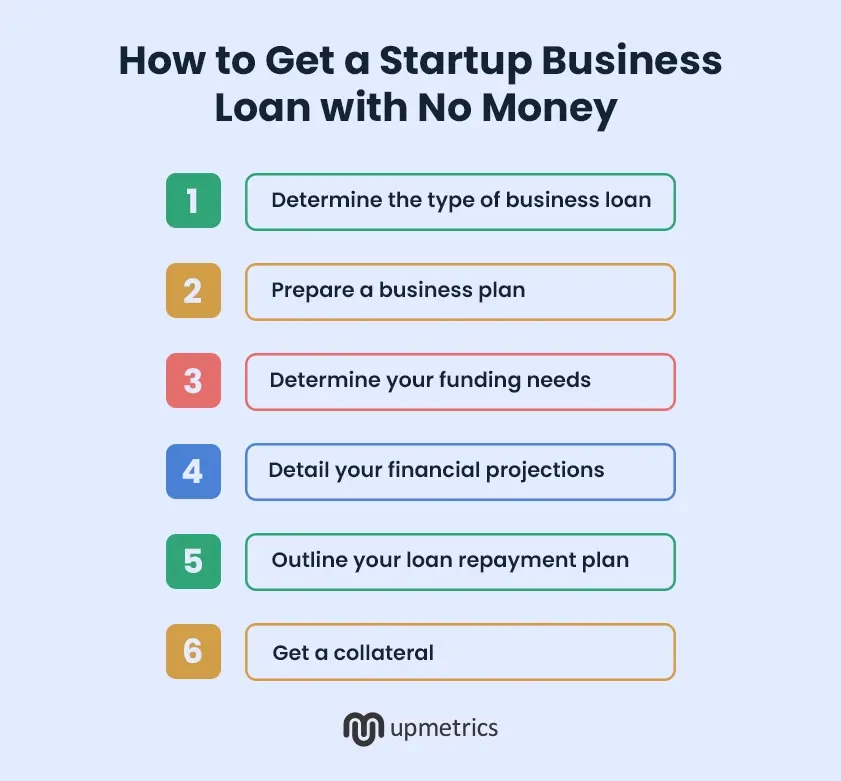Starting a business is an exciting journey, but getting the right funding can be very overwhelming. Be it a tech startup, a small local shop, or any creative venture, knowing your funding options is key to making your vision a reality.
In this blog, we are going to deconstruct the best ways to fund your business, discuss strategies to start with little to no money, and address the burning question: Does the government give free money to start a business? Let us get started.
What Is the Best Way to Fund My Business?
There is no one-size-fits-all answer to this question, as the “best” funding method depends on your business type, stage, risk tolerance, and long-term goals. Below are the most common and effective ways to finance your venture:
Bootstrapping
Bootstrapping refers to the funding of your business using personal savings, early sales revenue, or other assets such as property or investments. This method will give you total control over your business and will not incur any debt or equity dilution. However, this method requires great financial discipline and may limit growth speed.
Small Business Loans
There are loans for startups and small businesses by banks, credit unions, as well as online lenders. Through the United States Small Business Administration (SBA), loans with good terms are guaranteed, like the program of SBA 7(a). One would require a good credit score, collateral, and at least a detailed business plan to qualify.
Angel Investors and Venture Capital (VC)
When your business has tremendous growth potential, angel investors or VCs may provide capital for equity. Angel investors are usually high-net-worth individuals, while VC firms invest larger sums in scalable startups. These options are suitable for tech or innovative businesses but give up partial ownership.
Crowdfunding
Platforms such as Kickstarter, or GoFundMe enable one to raise funding from the crowd in exchange for rewards, pre-orders, or equity. Consumer-facing products can be crowdfunded if they have a beautiful story.
Family and Friends
Borrowing from family and friends is the norm for most startups. Formalized agreements with writing contracts to reduce misunderstandings will be helpful too.
Competitions and Grants
Some industries qualify for grants from governments, nonprofits, or corporations (e.g., clean energy, tech, or social enterprises). Business pitch competitions also offer cash prizes and mentorship.
How Can I Fund a Startup With No Money?
Starting a business with little money is difficult but not impossible. Here’s how to get creative:
Leverage Equity
Spend time and expertise instead of money. Take on activities like marketing, web design, or product development for yourself. Team up with people who will add value to the business in exchange for a stake in the future.
Presell Your Product or Service
Show that people want it, and start to build cash by selling pre-orders or subscriptions prior to launch. It is quite common in e-commerce and SaaS.
Exchange for Resources
Trade your skills or products for services you need. For instance, a graphic designer can create an accountant’s logo in exchange for tax preparation services.
Use free or low-cost tools.
Set up a free website with WordPress or Wix, manage the social media via Canva and Buffer, and use a free accounting system like Wave. Work remotely so that you can minimize overhead.
Join an Incubator or Accelerator
Programs such as Y Combinator or Techstars offer seed funding, mentorship, and workspace in exchange for equity. Many also host demo days to connect startups with investors.
Partner with Strategic Partners
Partner with established businesses to share costs or cross-promote. For example, a food startup could collaborate with a local café for product trials.
Does the Government Give Free Money to Start a Business?
Although the government does not dispense “free money” for free, it provides grants, low-interest loans, and tax incentives to small businesses. Here is how to access these resources:
Federal and State Grants
- SBA Grants: Specifically grants are provided by SBA for defined purposes like STEP (Exporting Goods), and SBIR (Research and Development).
- Grants.gov: The database lists thousands of federal grants in industries such as agriculture, healthcare, and education.
- State Programs: Many states offer grants to local businesses, particularly in low-income communities or high-unemployment regions.
Small Business Loans
Although not free, government-guaranteed loans, such as SBA 7(a) loans, carry lower interest rates and longer repayment periods than commercial loans.
Tax Credits and Incentives
Governments offer incentives for hiring veterans, investing in renewable energy, or locating operations in opportunity zones. Identify federal and state tax credits that apply to your business.
Local Economic Development Programs
Check with your city or county for microloans, training programs, or subsidies to stimulate local entrepreneurship.
Conclusion
Engage in pre-sales, partnerships, and sweat equity, and get momentum going. While government grants are not exactly free money, they are a valuable resource for businesses that qualify.
Remember that every successful entrepreneur faces funding issues. The idea is to adapt, refine the pitch, and utilize all of the tools in your arsenal to secure the capital needed to help bring your dream business to fruition.

